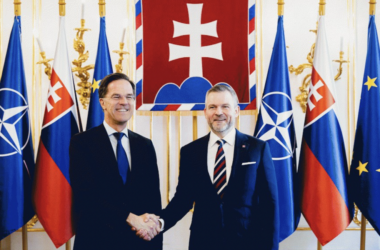Panama’s President José Raúl Mulino has strongly rebuffed claims made by the U.S. State Department that American government vessels no longer need to pay a fee to transit the Panama Canal. Mulino described the statement as “lies and falsehoods,” accusing the U.S. of misrepresenting the facts.
The controversy began when the U.S. State Department announced that U.S. government vessels could now pass through the canal without charge, claiming this change would save the U.S. government millions of dollars annually. However, U.S. Secretary of State Marco Rubio later backtracked on the claim, calling the fee for American vessels “absurd” due to a treaty binding the U.S. to protect the canal if it faces an attack.
The Panama Canal, which links the Atlantic and Pacific Oceans across Central America, charges all vessels a toll based on size and type, with U.S. ships given priority passage. Mulino responded to the State Department’s statement by rejecting “this method of managing bilateral relations,” adding that U.S. government vessels, including navy ships, typically pay around $6-7 million annually to cross the canal.
The Panama Canal Authority (ACP) also issued a statement clarifying that no adjustments had been made to tolls and that they were open to dialogue with the U.S.
In the wake of the dispute, Panama announced it would not renew its participation in China’s Belt and Road Initiative, a move that Rubio praised as “a great step forward.” However, Panama denied that this decision was influenced by the U.S.
Meanwhile, U.S. President Donald Trump has repeatedly voiced concerns about China’s growing influence in the region, particularly regarding the Panama Canal. Trump has even suggested that the U.S. might retake control of the waterway, an idea Panama strongly rejects. Mulino reaffirmed that the canal “is and will remain” under Panama’s control.
The U.S. constructed the canal in the early 20th century, but after years of protest, President Jimmy Carter signed a treaty in 1977 to gradually return control to Panama. Trump has called this decision a “big mistake” since taking office.
Rubio’s remarks came during his visit to the Dominican Republic as part of a broader tour of Central America, focused on migration and drug trafficking issues.




